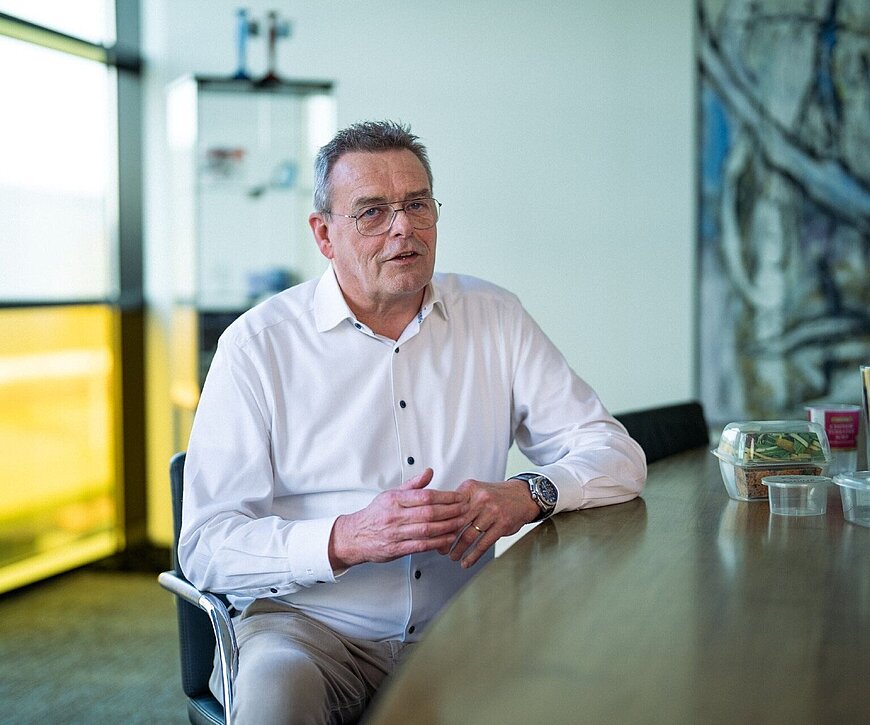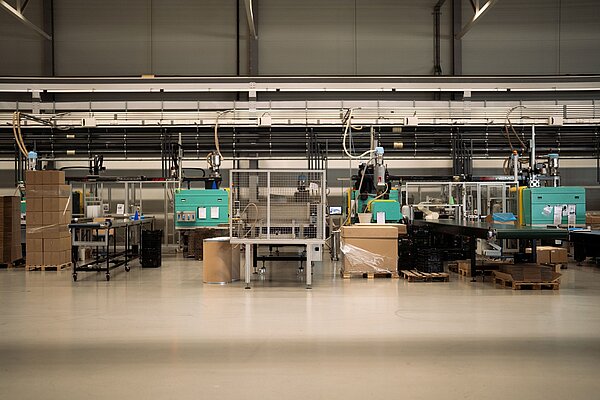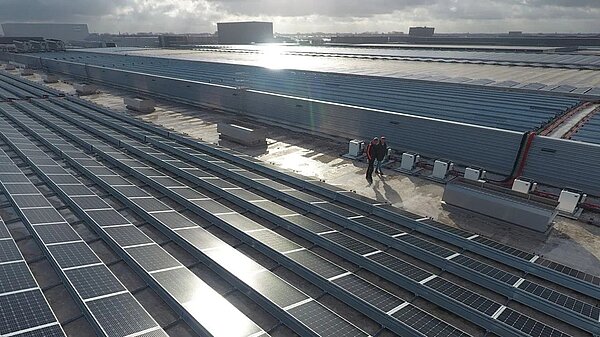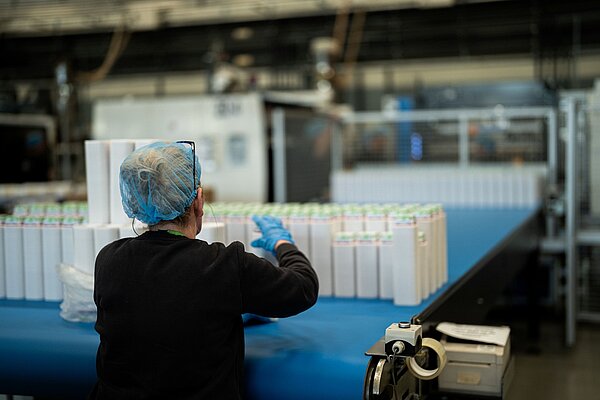Plastic injection moulding in an energy-efficient way

"Our injection moulding machines are often hydraulic, but the more modern machines are electrically driven. With this, we save 30% or more in electricity. So we can produce more with the same amount of power."
Family-owned company Naber Plastics specialises in sustainable plastic injection moulding. They aim for a circular economy and use recycled plastic wherever possible. However, due to grid congestion, they cannot grow as fast as they would like. Therefore, they are now focusing on more energy-efficient machines so that they can produce more with the same amount of power. Founder Wim Naber explains exactly how they do this.
What is your role in the company?
"I founded the company with my wife in 1989. We started making CD boxes. That went very well at the time, but just as quickly as it took off, it collapsed again. Then we switched to food packaging and flower buckets. The second generation now runs the company. I am still around every day, but I only engage in extra activities that my children don't have time for. Now, for instance, I am consulting on how to handle grid congestion."

How does grid congestion affect your operations?
"Our entire production depends on electricity. When we started at this site, I applied for a connection of 6 megawatts, with a view to future growth. At the time when grid congestion became an issue, our highest load was 3.4 megawatts. Now we don't get allocated more than that. As a result, we cannot grow any more. The only way to grow now is to invest in more energy-efficient machines. That is what we are doing. Our injection moulding machines are often hydraulic, but the more modern machines are electrically driven. This saves us 30% or more in electricity. So we can produce more with the same amount of power. Actually, we would like to grow much faster than this, and of course we find that very unfortunate. As a company, you just want to move forward."

Are you also working on other measures?
"We have almost 7,000 solar panels on the roof. When the sun shines full, that generates about 2 megawatts per hour. That's quite a lot, as our consumption is 3 megawatts. So when the weather is nice, we can generate two-thirds of our energy sustainably. But of course the sun doesn't always shine, and certainly not in the evening and at night. Yet we do always need power, because we run seven days a week, 24 hours a day. That is why we are also looking at batteries."
How could batteries help you?
"The batteries are mainly for peak shaving. If our consumption exceeds 3.4 megawatts, we can get that extra consumption from those batteries. You can also use batteries for trading. If there is too much power on the grid, you can recharge your batteries. If there is too little power, you can feed power back. This way, you can pay back your batteries over time. Basically, we are also helping the grid with this. You get paid for it, of course, but you are also helping to solve the problem. We also want to investigate whether we can be rated as congestion reliever with this deployment of batteries. The moment you give space on the grid for other customers through your own flexible power use, you can qualify for social priority. And you can get priority on the waiting list at Enexis."

Since when have you been working on this kind of solution?
"We have always been very conscious of our energy consumption. Because it is quite high, we still try to keep it as low as possible. We did the same when we built our new premises ten years ago. For instance, we have a heavy 10,000-volt power connection that we convert to 380 volts only at the very last moment, so that we have as little transport loss as possible en route. We have also set up our refrigeration so that there is as little pressure loss as possible in the pipes. That also saves a lot of energy.
I am a techie myself, and everything I could think of to save energy, we applied, regardless of the cost. With the thought that if it saves energy, we will earn it back in the long run. In our old premises, we used about 2.25 kilowatt hours per kilogram of plastic. Thanks to all the investments in the infrastructure of our current premises, we have been able to reduce that consumption to 1.20 kilowatt hours per kilogram. In fact, with further investments in our machinery, we are now down to 1.08 kilowatt hours per kilogram of plastic. That's a halving, which is huge. We didn't expect that much, but it shows that with all these measures together, you can save a lot.
At the time, we did this mainly for cost reasons. Less energy consumption simply means lower costs. That does mean, now that we have done almost everything, that there is little more to gain in terms of energy saving. When people come to us for advice, we often hear, “You've got it right, we can't help you any further.”
What advice would you give other companies facing grid congestion?
"Focus on energy-efficient production. I think that is one of the biggest savings. Buying energy-efficient machines may not be for every company. It is costly and you can hardly make your entire machinery sustainable in one go. It's a matter of time anyway. But it is interesting, when you have to buy a new machine, to choose an energy-efficient variant. It is also important that you do not use energy anywhere in your company when it is not necessary. For example, we make sure that the heating is not on when no one is working. Also, our lights turn off automatically when no people are there. These seem like small adjustments, but can make a big difference in a large building."
Getting started too?
Is your company also at your maximum contracted capacity with Enexis, but would you like to expand or become more sustainable? In the Brainport region, many innovative companies are working on smart solutions for energy generation, saving, storage and management. Find parties that can help you with smart grid congestion solutions.
Grid congestion ecosystem